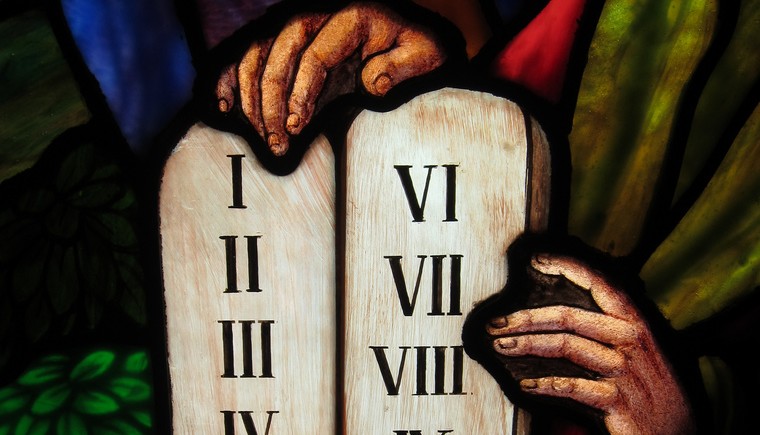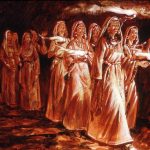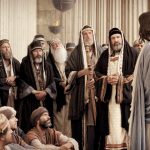
Na’aseh v’nishma: the obedience to God’s commandments.
By Rabbi Jill Jacobs
Judaism is often said to be a religion of deed rather than of intention. Though overly simplistic, this description reflects the centrality of mitzvot (commandments) in Jewish life, as well as the rabbinic conclusion that, in most cases, a person who performs a mitzvah without focusing on its significance has nevertheless fulfilled his or her religious obligation.
This understanding of Judaism as a religion of action is encapsulated by the biblical verse in which the Jews standing at Mount Sinai signal their acceptance of the Torah with the words “na’aseh v’nishma“–“We will do and we will hear/understand.” In other words, the Jewish people promise first to observe the laws of the Torah, and only afterward to study these laws. In traditional Jewish culture, this statement has come to epitomize the Jewish commitment to the Torah.
Study vs. Action
Three separate biblical verses record the Israelites’ acceptance of the obligations that the Torah will impose on them, but only the last of these contains the now-famous phrase “na’aseh v’nishma.” When Moses first ascends to Mount Sinai, God commands him to tell the people that if they accept the covenant, God will make them a “kingdom of priests and a holy nation” (Exodus 19:6). Upon hearing these words, the people respond, “All that God has said, we will do” (19:8).
Later in the text, after Moses relates specific divine rules to the people, they again say, “All of the things that God has said, we will do” (24:3). A few verses later, after Moses writes and reads aloud the words of the Torah, the people utter the phrase “na’aseh v’nishma,” “We will do and we will hear” (24:7).
The rabbinic tradition understands the words na’aseh v’nishma as a correction of the earlier promises simply to “do” what God has commanded. According to one midrash:
“‘And they [the Children of Israel] said, “all that God has said we will do and we will hear,”‘ since they had initially prioritized doing. Moses said to them, ‘Is doing possible without understanding? Understanding brings one to doing.’ They then said, ‘We will do and we will understand,’ [meaning] ‘We will do what we understand.’ This teaches that the people said ‘na’aseh v’nishma’ before receiving the Torah” (Mekhilta d’Rabbi Shimon bar Yochai 24:7).






